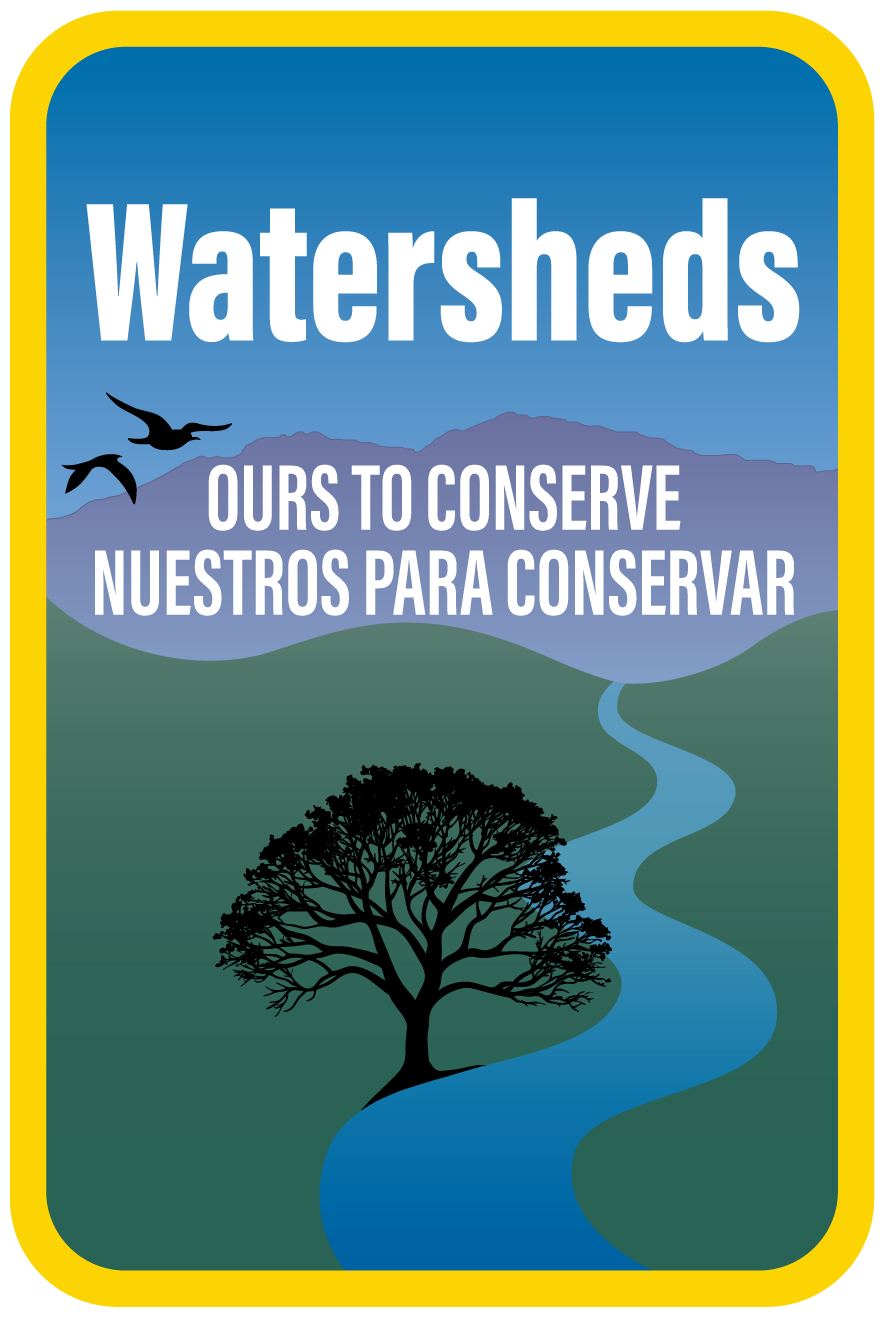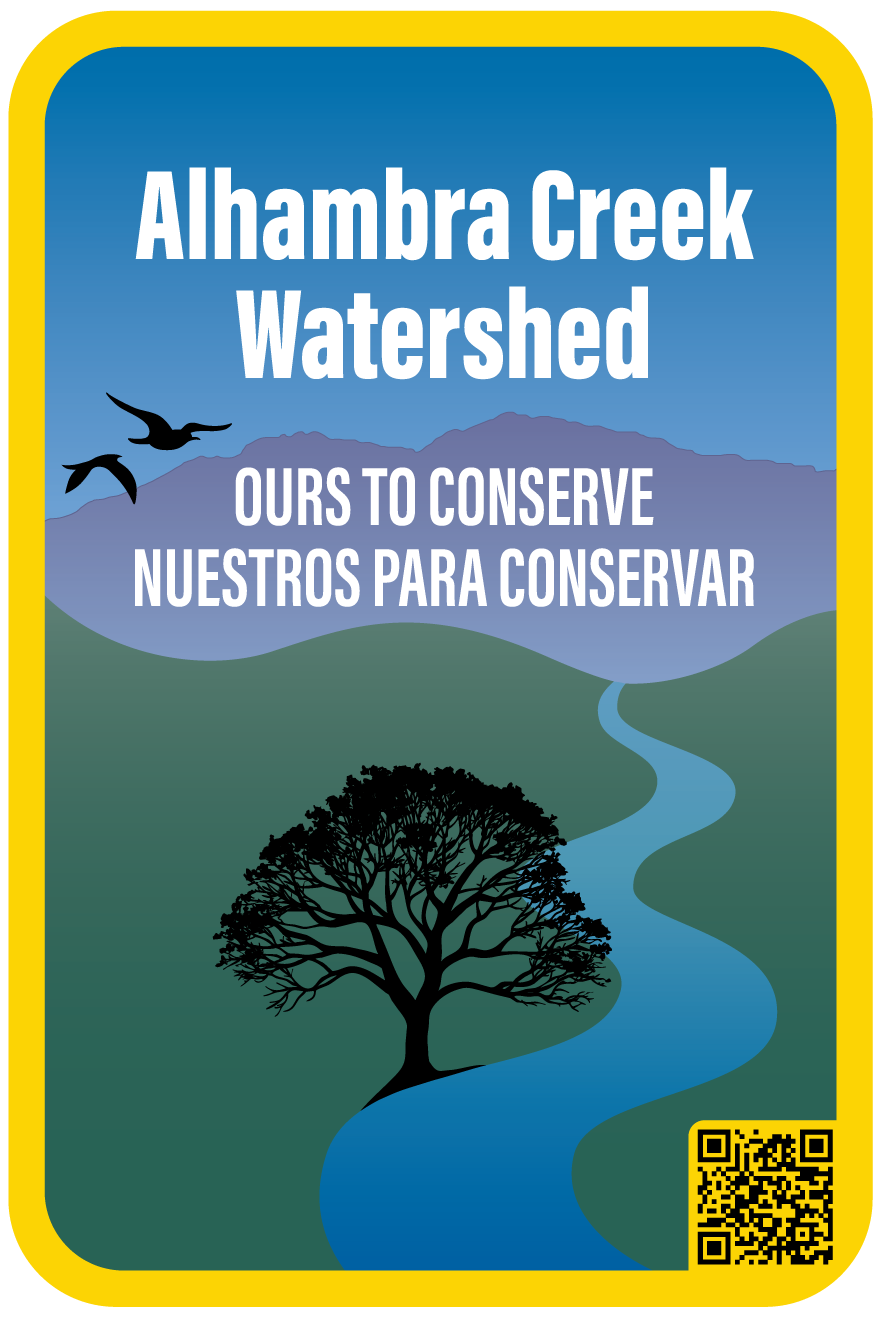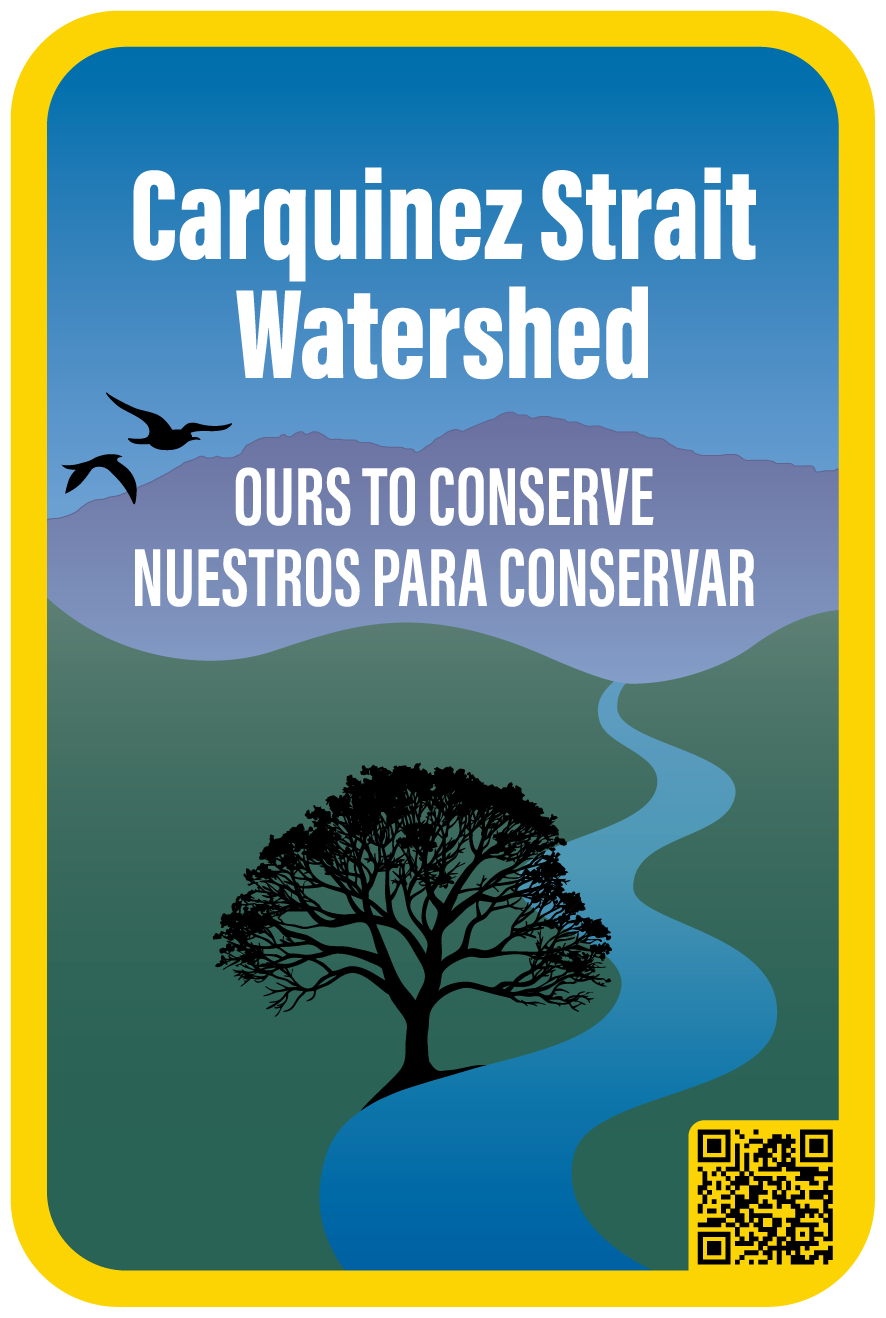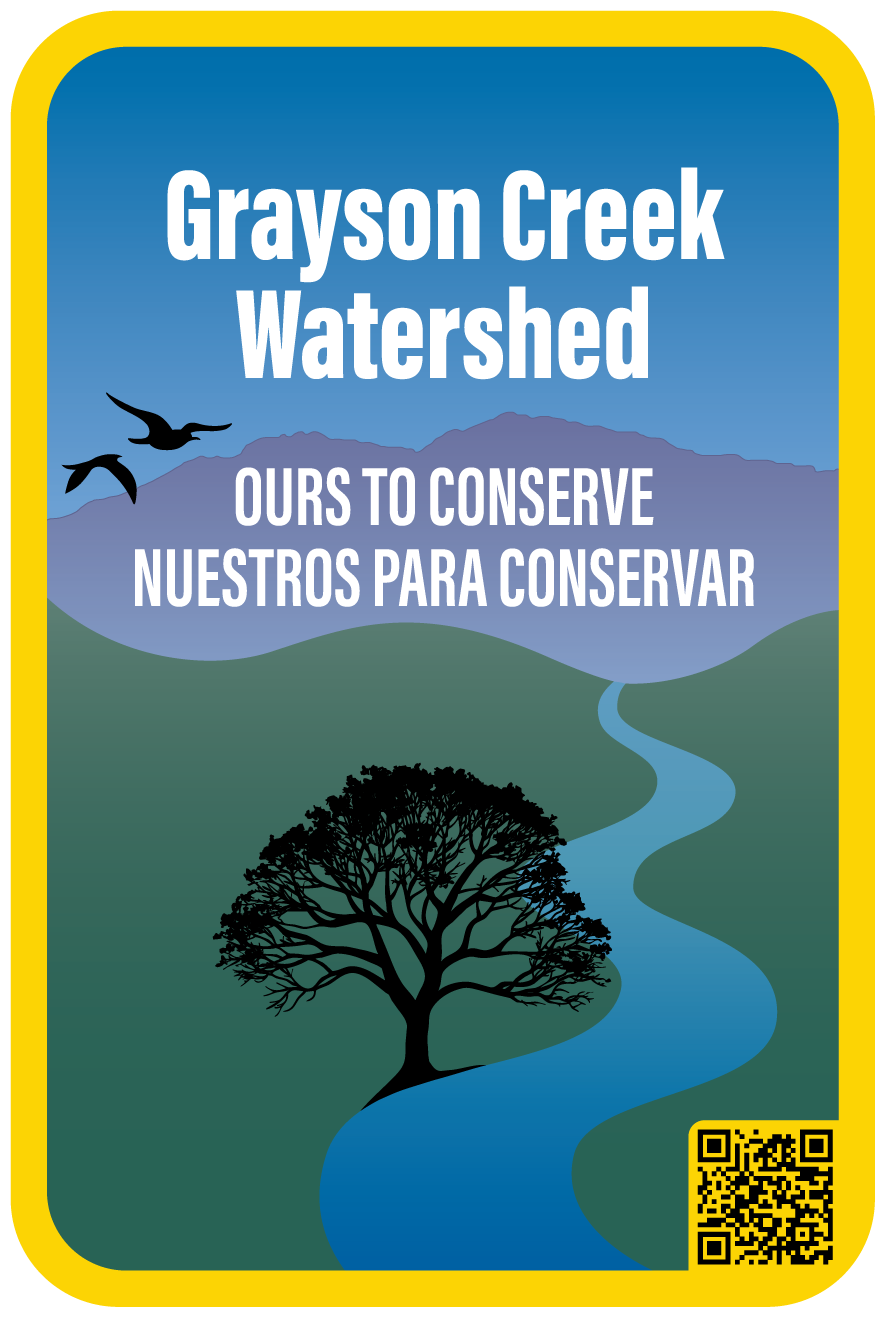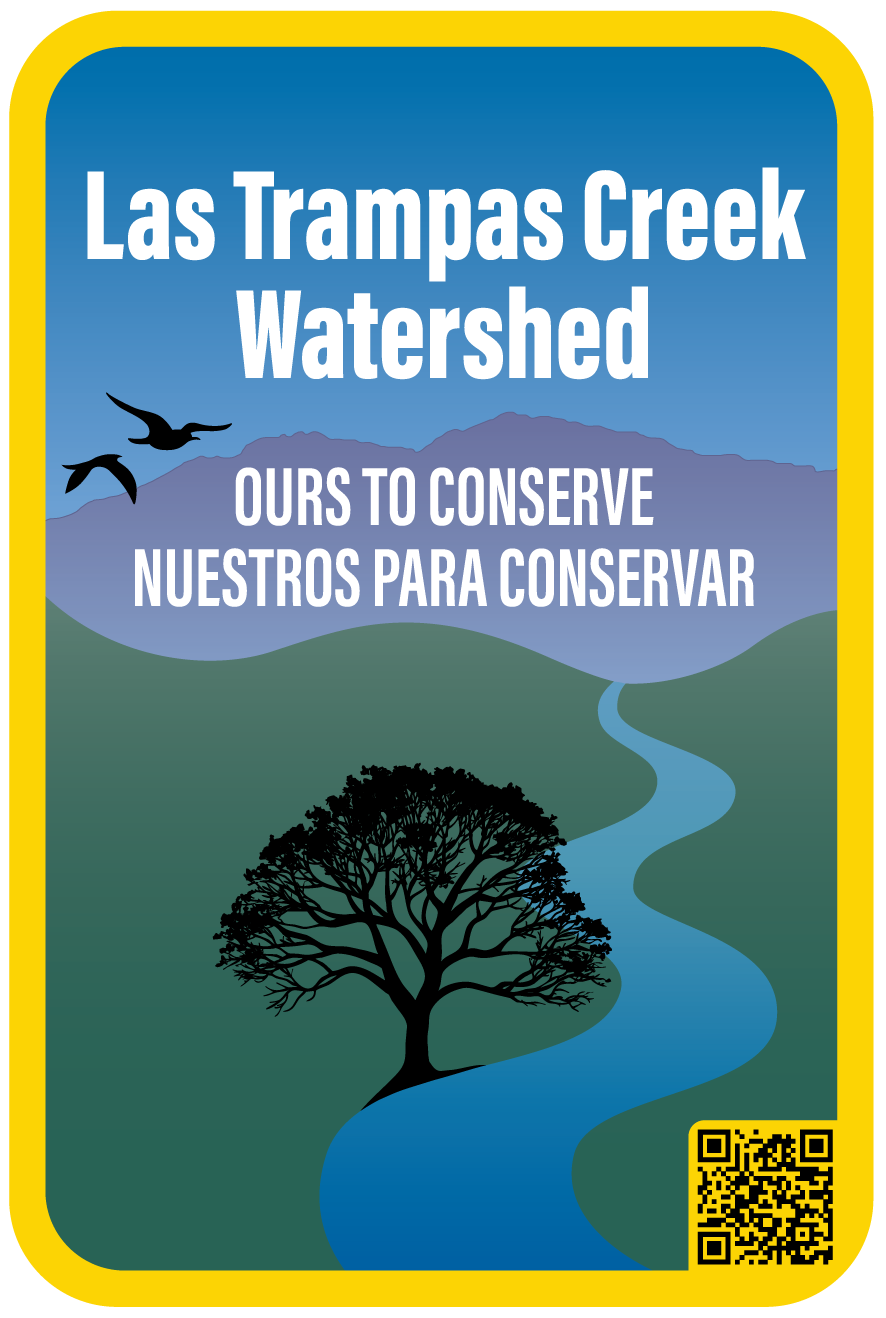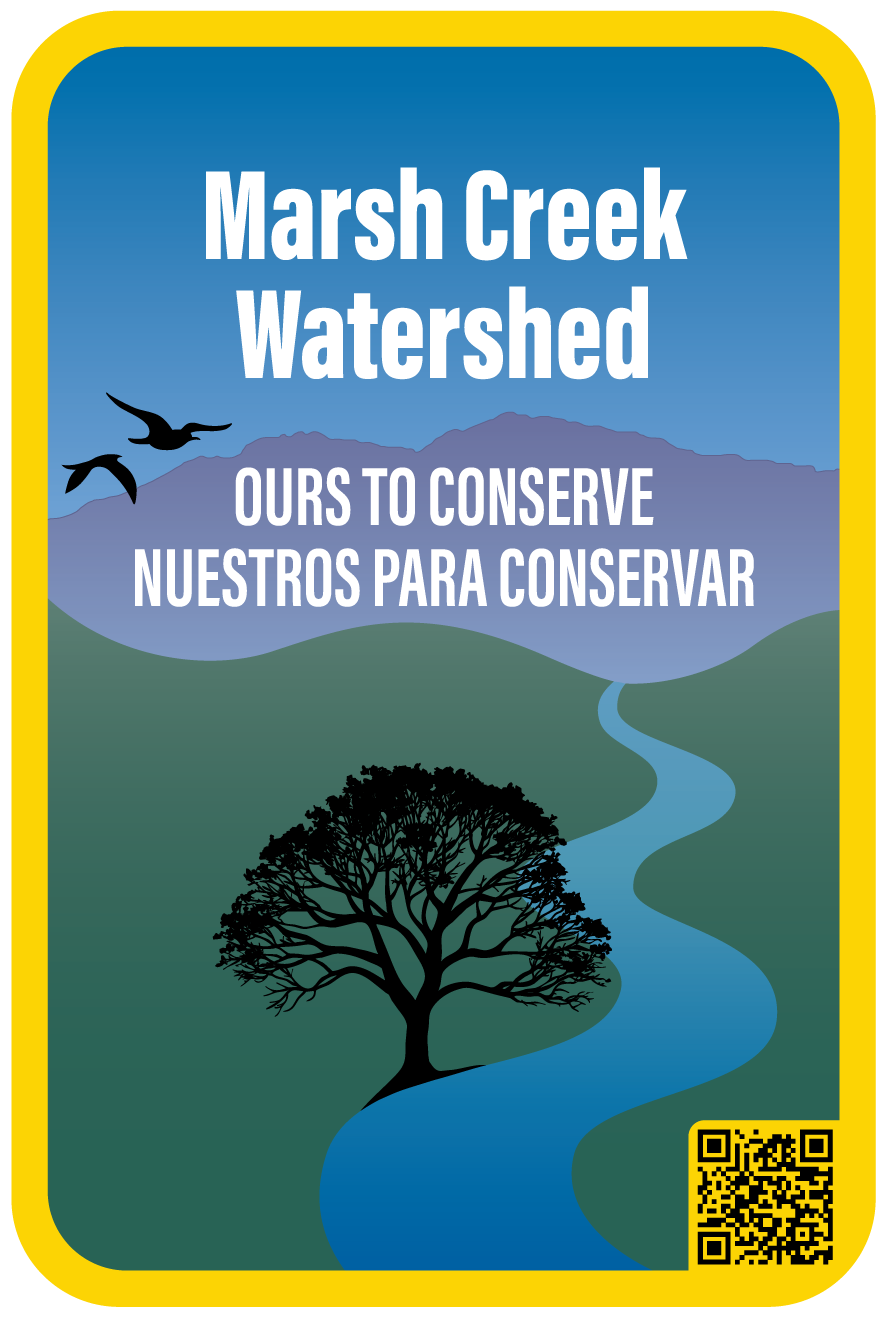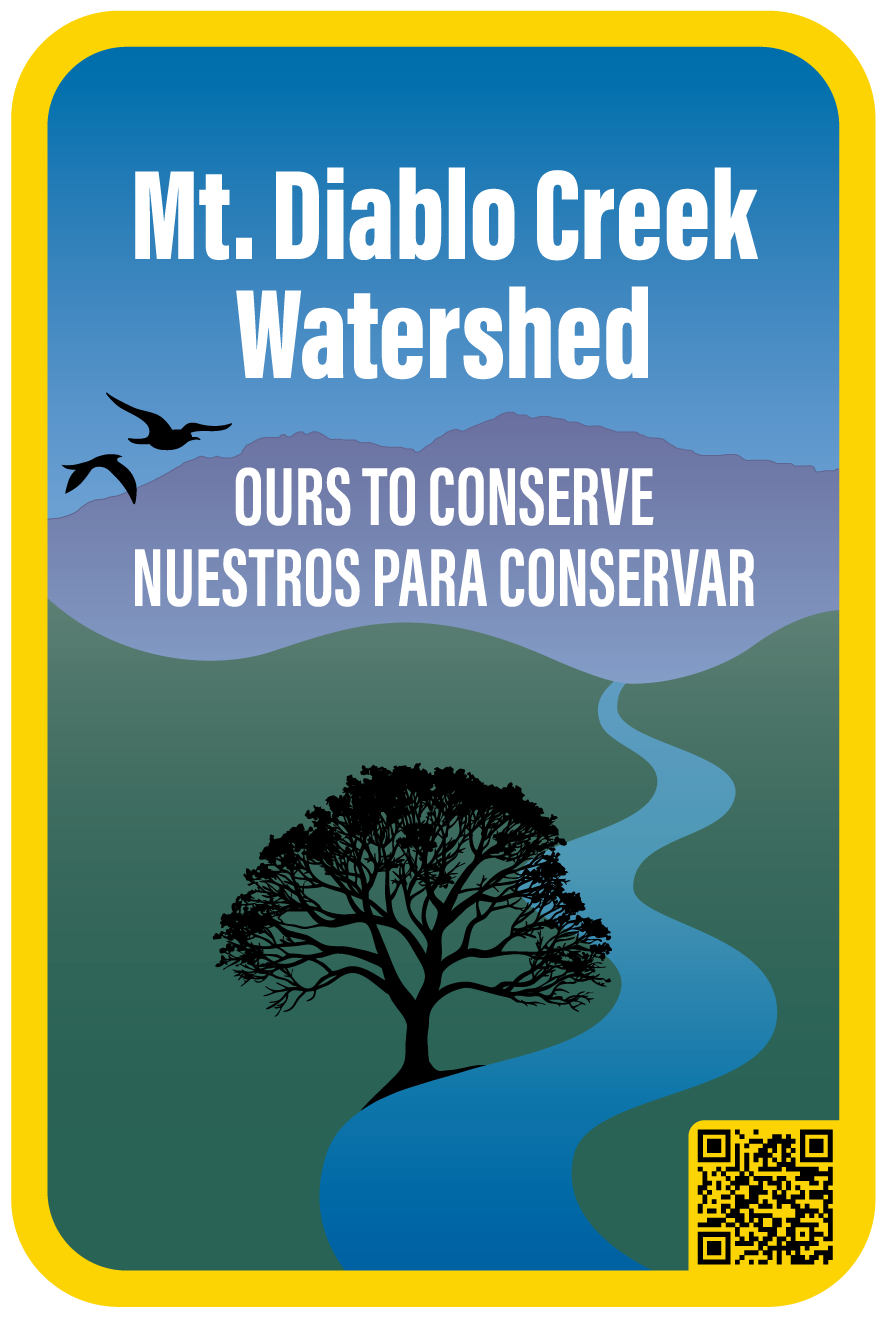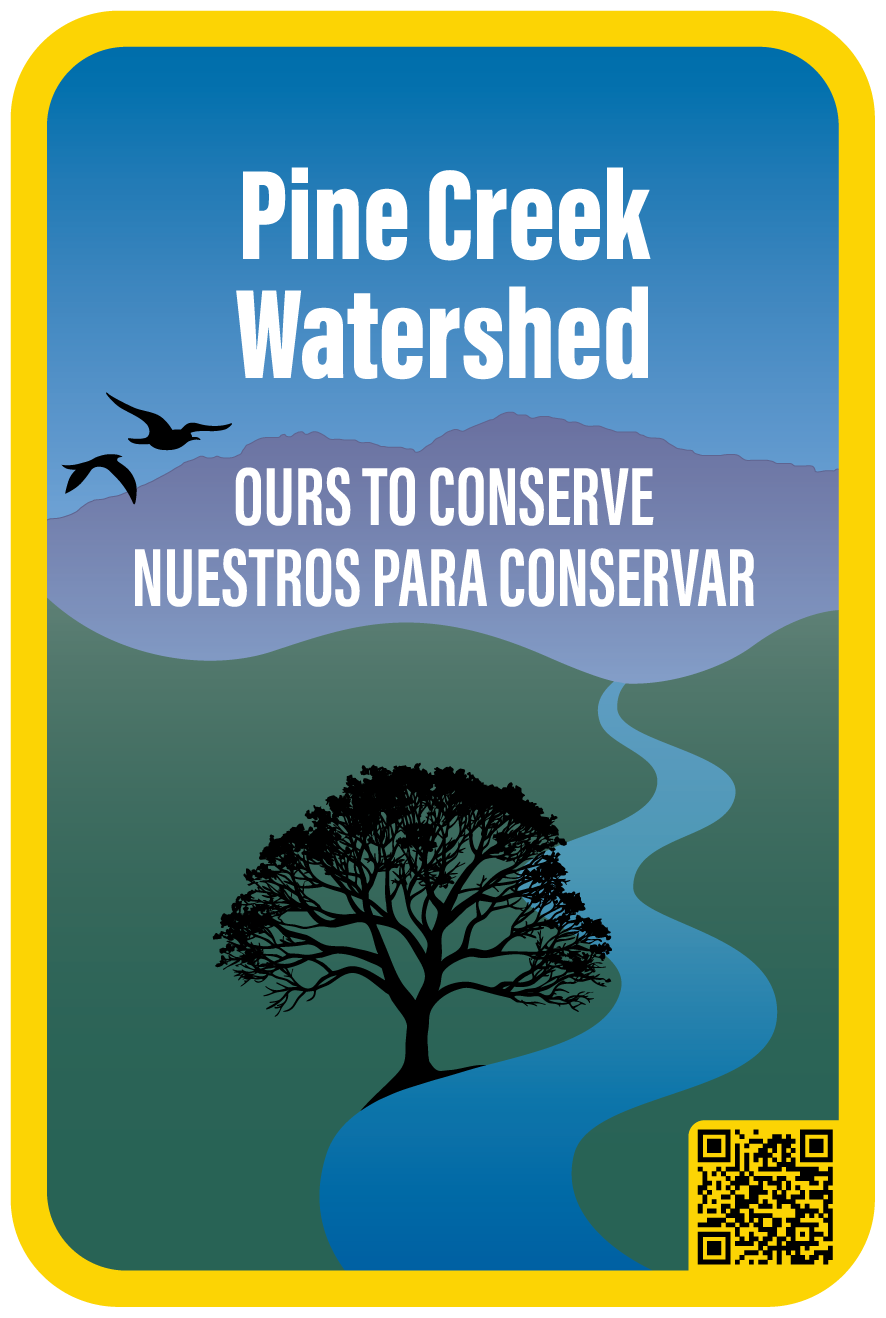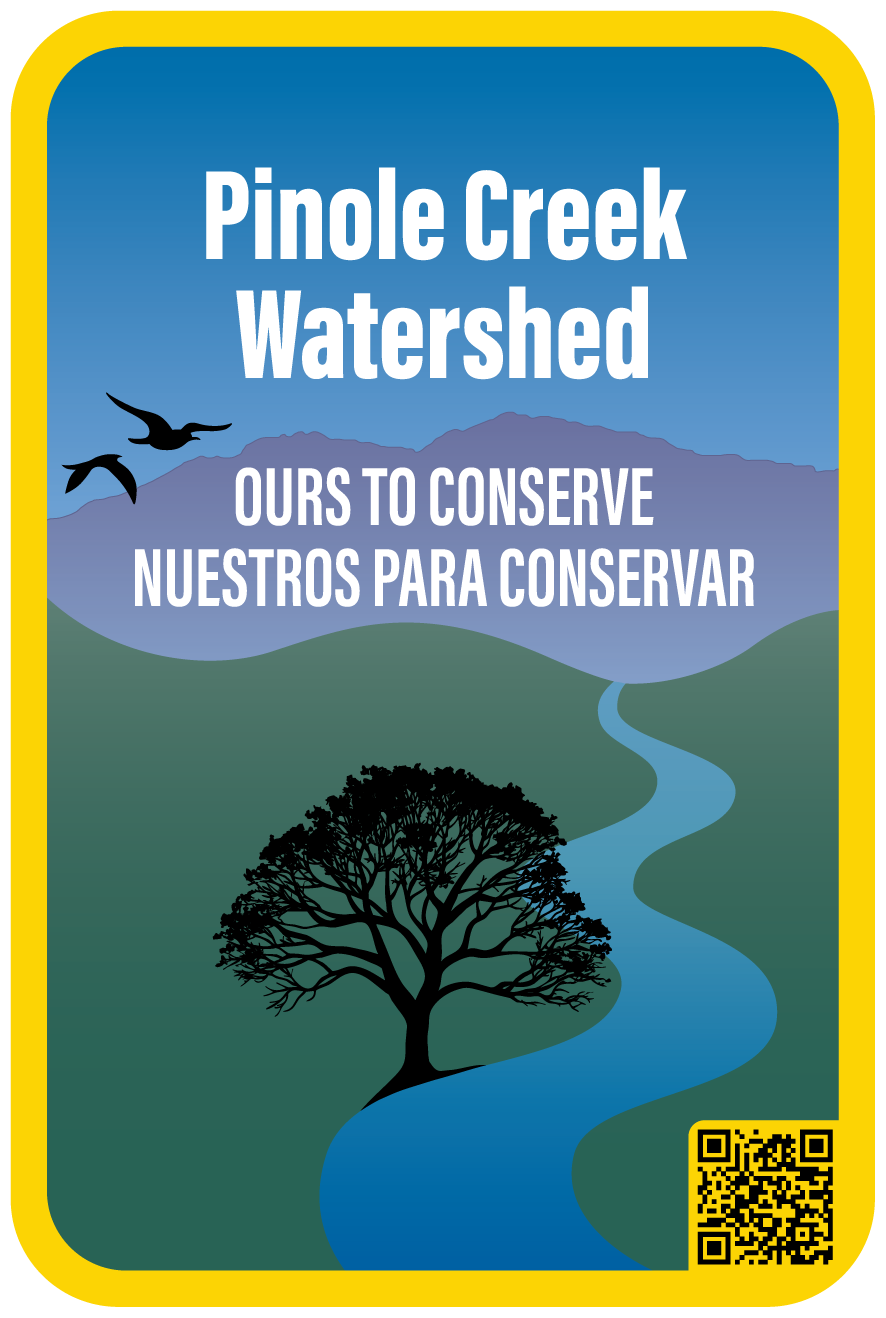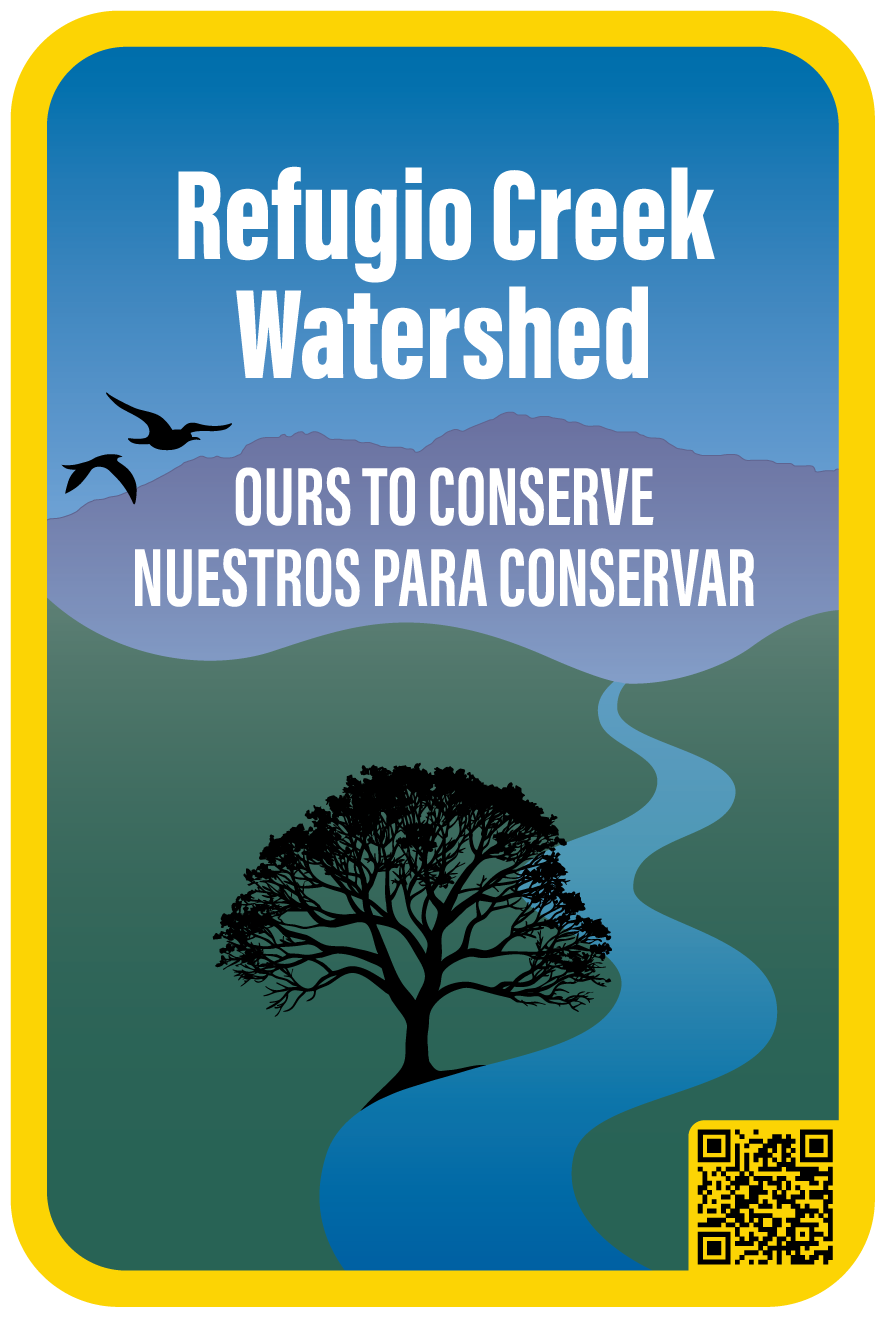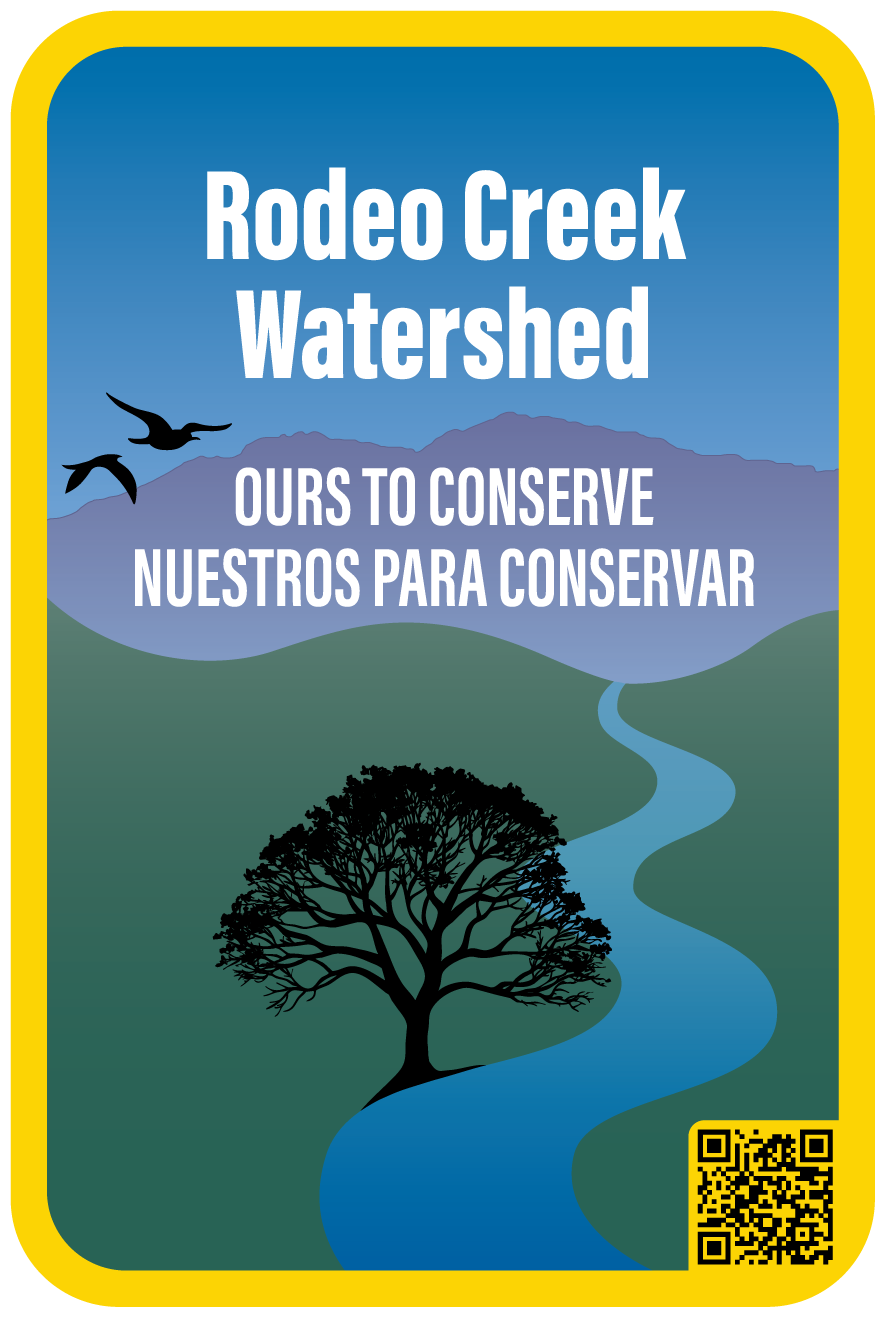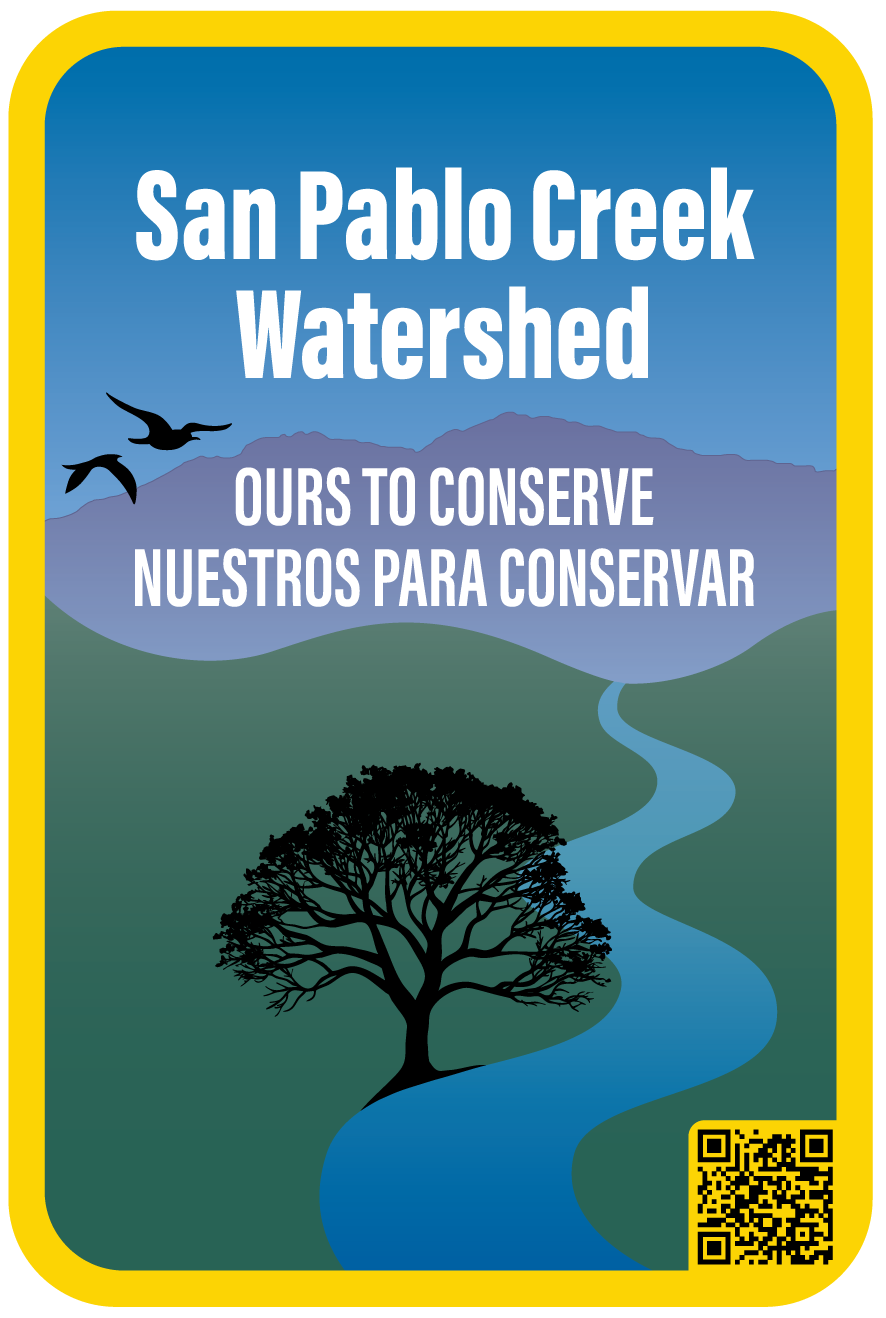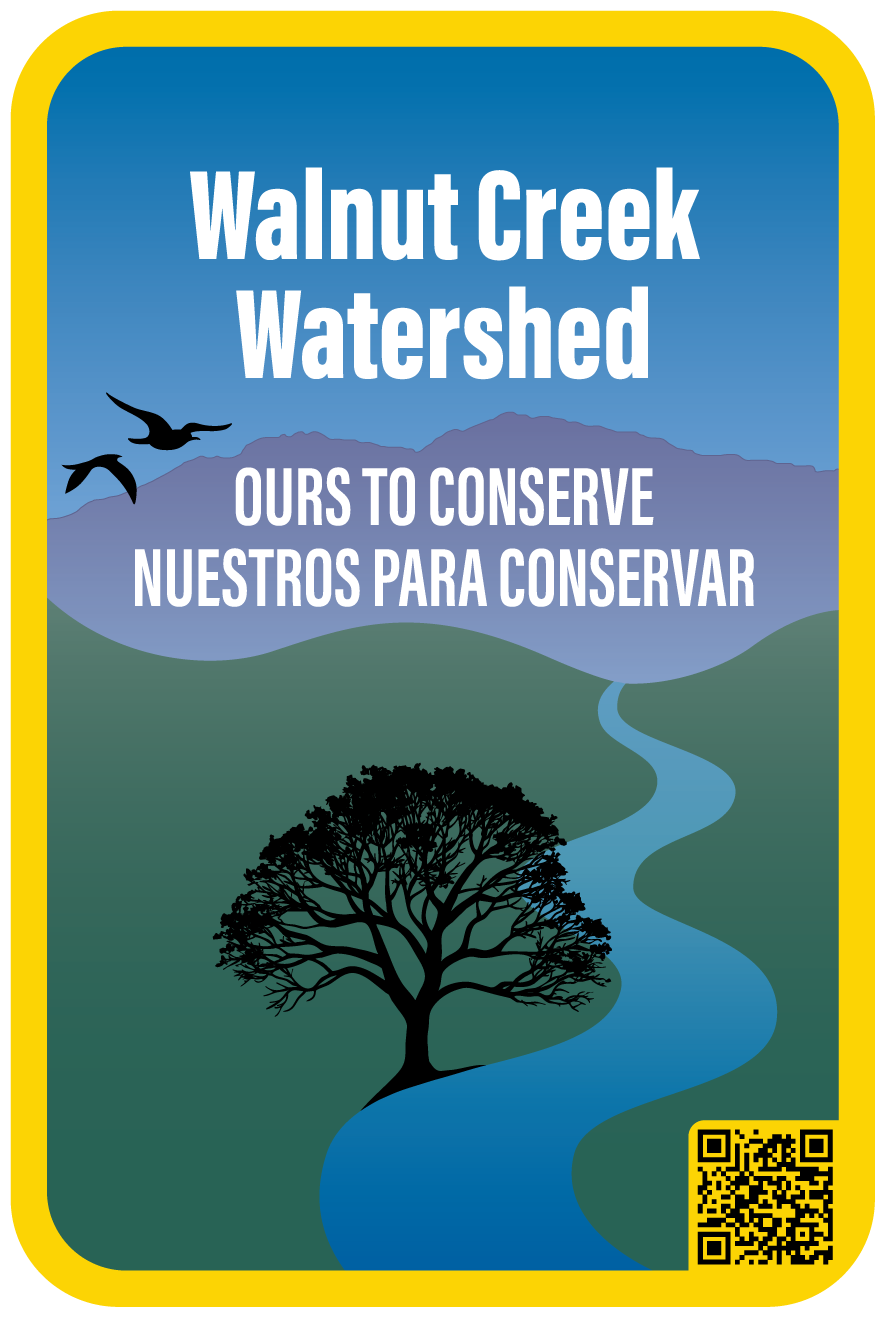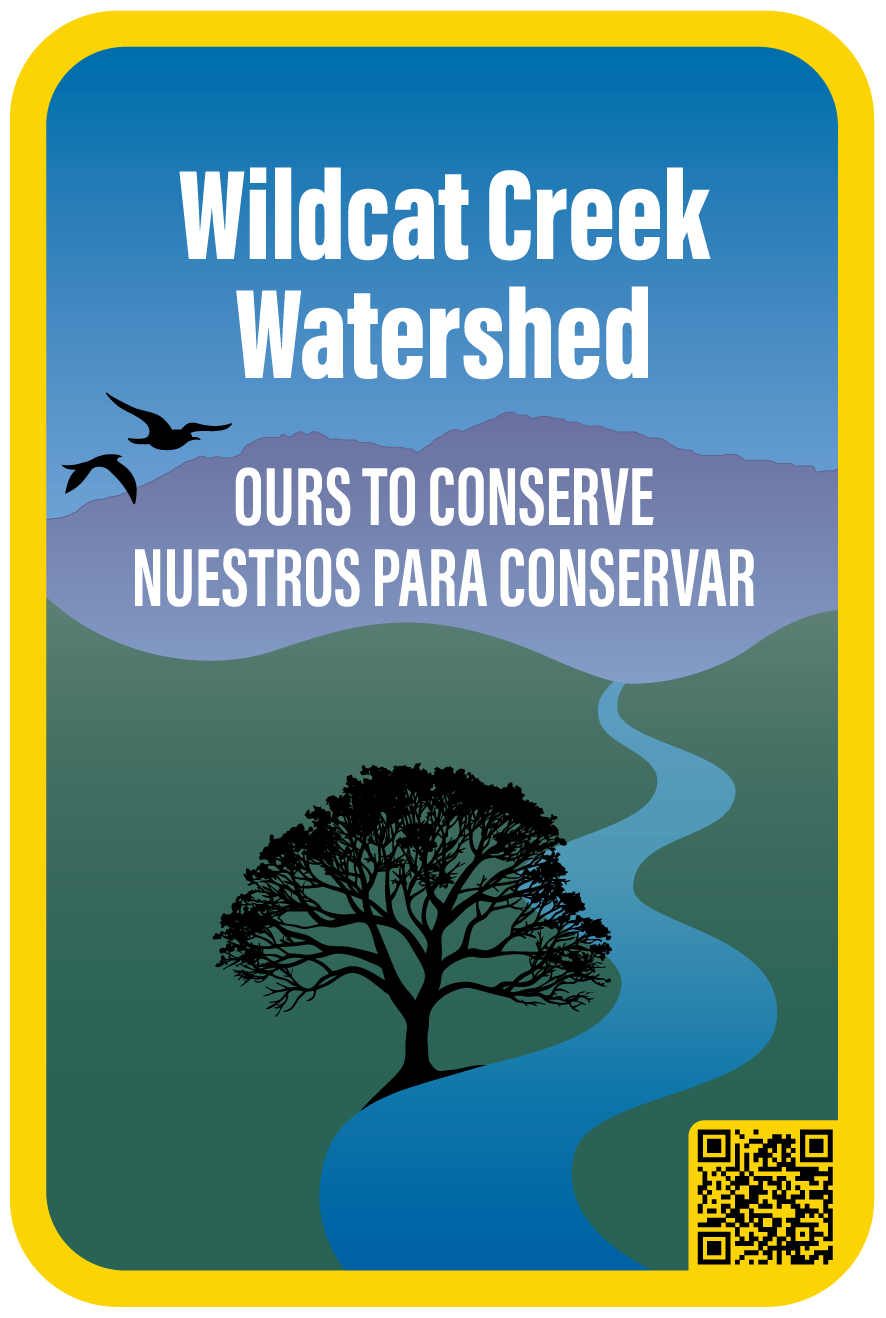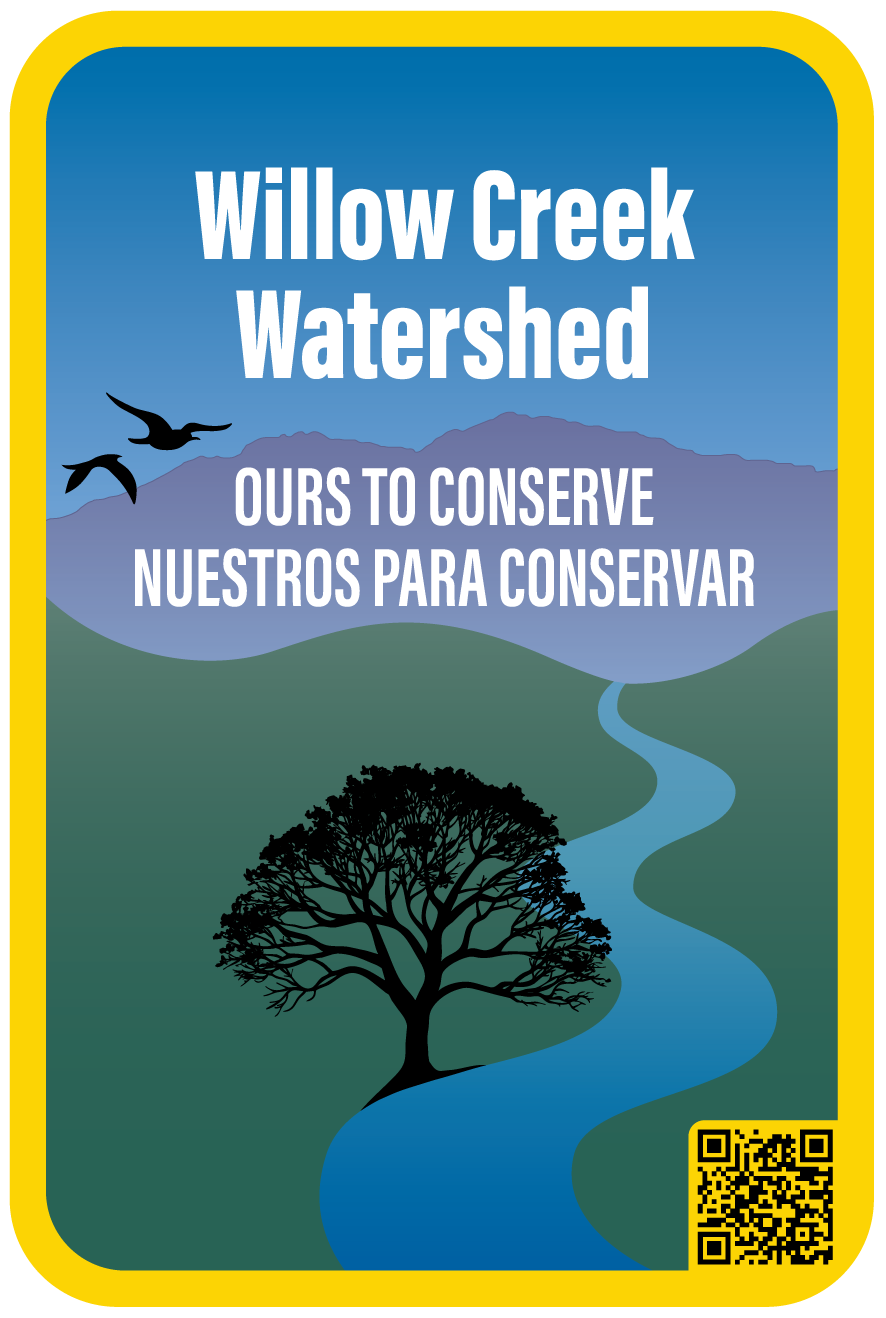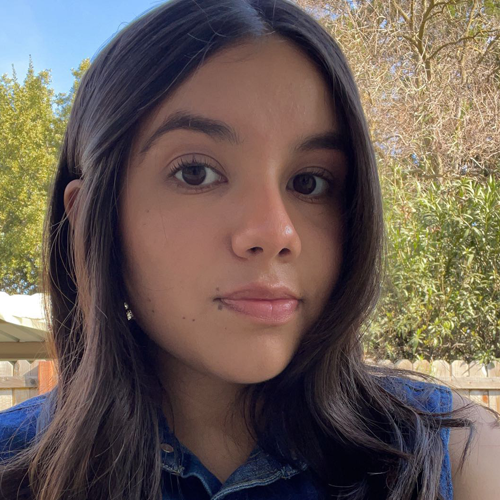Our Watersheds
Interpretive Panel Language Translations
Water-wise Gardening

Pollinator Garden

Alhambra Creek Watershed

"The Alhambra Creek Watershed covers approximately 16.5 square miles in north central Contra Costa County in Northern California and encompasses a portion of the City of Martinez. Its upper portions are wooded/grassy ridges and slopes, which collect runoff for three main stem streams. The combined branches flow through valleys containing open space, wildlife habitat, residential and commercial areas, through downtown Martinez and then discharge into the Carquinez Straits through a tidal wetland." (Alhambra Creek Watershed Management Plan, Alhambra Creek Watershed Planning Group, April 2001, p. 24).
The Alhambra Creek Watershed Planning Group has evolved into the Alhambra Watershed Council of today.
Alhambra Creek Watershed
The Alhambra Native Plant Trail
Partner: Alhambra Watershed Council
Partner: Friends of Alhambra Creek
Marsh Creek Watershed

Marsh Creek watershed is the second largest watershed in Contra Costa County. It originates on the eastern slope of Mt. Diablo and flows 30 miles through the rapidly growing communities of Brentwood, Oakley, and Antioch in eastern Contra Costa County and into the Sacramento-San Joaquin Delta.
The Three Creeks Parkway Restoration Project
The Dutch Slough Wetland Restoration Project
Partner: Friends of Marsh Creek Watershed
Partner: American Rivers
Rodeo Creek Watershed

The Rodeo Creek Watershed is located in Western Contra Costa County. Interstate 80 and Highway 4 pass through the watershed. The Cities of Hercules and Pinole are directly to the south and the community of Crockett is to the north.
Rodeo Creek Watershed Vision Planning Group
Jurisdiction Maps
Walnut Creek Watershed

The Walnut Creek Watershed is the largest watershed in Contra Costa County totaling 146 square miles, or 96,000 acres, in size. The Walnut Creek Watershed has 309 miles of creek channels accounting for almost a quarter of all mapped creek channels in Contra Costa County. The watershed extends from San Ramon to the south, Martinez to the north, Moraga and Orinda to the west, and Concord to the east.
Watershed Program Photo Gallery
Heidi Petty
Skills: Watershed management and coordination, grant writing, fundraising, events.
Fun Fact: Owns a marina, small urban farm, and a Scottish Highlander cattle ranch in the Delta. Loves music and silly hats!
Heidi Petty
Heidi Petty has been with the CCRCD since 2007. Her current position is Watershed Program Manager and Fundraising Coordinator, focusing on the Contra Costa side of the Carquinez Strait shoreline. In 1999, Heidi started a small bonsai and custom saltwater reef tank business named ‘Through the Looking Glass: A Living Art Studio’ in Crockett, CA, where she got an in-depth understanding of saltwater filtration and hydrology. Heidi has held numerous community leadership positions in the Crockett, Port Costa, and Rodeo area, including President of the local Chamber of Commerce and Board Member on the Crockett Community Services District. Her entrepreneurialism and government service background makes her a valuable asset to the RCD as a special government district.
She now lives on the river in Oakley, CA, and owns a marina and small urban farm as well as a 28-acre Highlander Cattle Ranch in the SF Delta. She is excited to expand her work by partnering with the technology industry to create innovative ways to help the environment through long-term partnerships and connecting tech to her restoration work.
Lisa Damerel
Skills: Horticulture, CA native plants, invasive plant management, pollinators, environmental education, project management, grant writing.
Fun Fact: Enjoys birding, photography, knitting, flower arranging, and traveling.
Lisa Damerel
Lisa serves as the Watershed Conservation Manager for the Walnut Creek Watershed, she facilitates the Contra Costa Watershed Forum, and she leads the CCRCD’s Monarch Conservation Program. She joined the CCRCD’s staff in January 2019 and has worked on a range of projects to conserve Contra Costa County’s watersheds and biodiversity. These projects include native plant and pollinator habitat establishment, invasive plant management, creek restoration, and environmental education programming.
Lisa is from Los Angeles and has a BA with Honors in English from the University of California at Berkeley. She earned a Professional Sequence in Editing certificate from UC Berkeley Extension and worked in publishing for 10 years, primarily editing educational materials including science textbooks and curricula. She returned to school to study horticulture at Diablo Valley College where she earned a Nursery Technician certificate.
In 2023, she completed the UC Berkeley Beahrs Environmental Leadership Program with a certificate in Sustainable Environmental Management. Through her work in the environmental field, Lisa aims to cultivate healthy and sustainable relationships between people, plants, wildlife, and the land.
Evan Green
Skills: Ecological restoration, California native plant horticulture, volunteer coordination, environmental education, community outreach.
Fun Fact: Enjoys collecting more plants than he can fit in his yard, loves learning about restoration projects around the world for inspiration.
Evan Green
Evan developed a love of nature as a kid catching lizards and building forts in the canyons of suburban San Diego. This deep interest in the natural world evolved into a focus on the human relationship with nature. Following this interest, he studied Environmental Science at UC Berkeley and Environmental Horticulture at Merritt College in Oakland. He spent several years working in retail plant nurseries before obtaining a master’s degree in Regenerative Studies (environmental sustainability by another name) at Cal Poly Pomona. This led to an extremely rewarding position as a garden educator at an elementary school in an underserved community in Pomona, CA, growing his love for environmental education work.
Working as a California native plant horticulturist at California Botanic Garden in Claremont, CA, then caused Evan’s interest in ecological restoration to blossom. He considers restoration to be a crucial pursuit for preserving biodiversity, mitigating climate change, and fulfilling people’s desire to heal the natural world. He worked several years as a restoration technician on projects throughout the Bay Area and is excited to be involved in community-focused watershed conservation with CCRCD.
Ivette Rivero
Skills: Habitat stewardship, landscape design, plant and pollinator identification, horticulture, volunteer coordination, environmental education, community outreach.
Fun Fact: Loves collecting native plants for her garden, designing stickers, playing video games with friends, and going on solo backpacking trips.
Ivette Rivero
Ivette was born and raised in San Jose, speaks fluent Spanish, and graduated from UC Davis with a B.S. in Environmental Science & Management. That major allowed her to explore a lot of different tracks ranging from ecology to environmental policy, but it was ultimately her work at the UC Davis Arboretum & Public Garden that sparked her passion for habitat stewardship and environmental education.
She spent two years there co-leading a team of undergraduate interns through a curriculum focused on building sustainable gardening practices and restoring pollinator habitat. She also helped pilot new climate initiatives and gardening programs designed to research and recommend drought-tolerant, pollinator-friendly plants for community use. In addition, she collaborated in organizing public outreach events where she distributed educational resources on how to design resilient landscapes that support local wildlife.
She is passionate about making environmental education accessible and inspiring others to take actionable steps toward supporting local biodiversity and engaging with local habitat.


